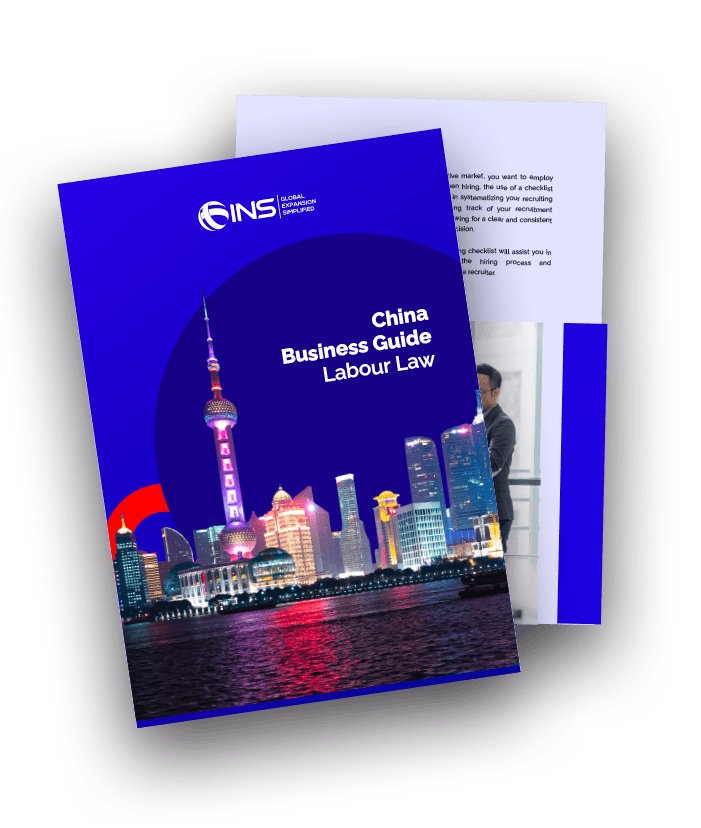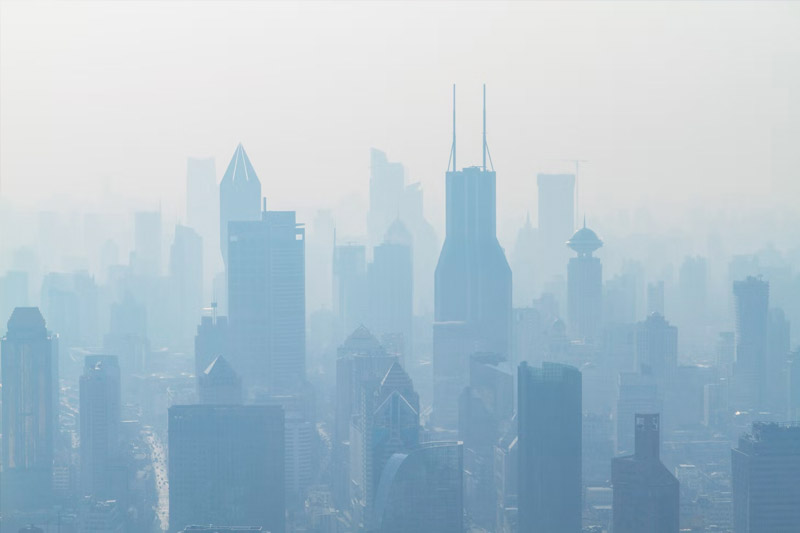Environmental compliance regulations should now be a major concern of virtually any company involved in manufacturing in China. Due at least in part to the government now putting teeth behind its enforcement efforts. For years, authorities did not enforce environmental laws in the interest of maintaining economic momentum. However, in 2017 alone, it shut down tens of thousands of factories for environmental non-compliance.
Now more than ever, businesses need to consider the costs of compliance and non-compliance. Ensuring compliance with environmental laws include paying for inspections and audits, purchasing government-approved pollution monitoring equipment, not to mention paying taxes on units of pollution.
Alternatively, the costs of non-compliance are much higher and could mean the end of your manufacturing business in China. In fact, China is now frequently shutting down factories outright for non-compliance.
The major types of pollution authorities are monitoring include air pollution, water pollution, noise pollution, soil pollution, and general waste.

Tired of scrolling? Download a PDF version for easier offline reading and sharing with coworkers
In a hurry? Save this article as a PDF
Tired of scrolling? Download a PDF version for easier offline reading and sharing with coworkers.
Fill up the form below 👇🏼
Enforcement of Environmental Compliance Regulations
Today, local governments in China face pressure from the central government to meet a variety of goals. These include maintaining local economic growth and, increasingly, environmental goals. As a result, local officials may believe that, at times, the two goals of economic growth and environmental compliance are in conflict with one another.
For example, shutting down scores of factories in one city for environmental non-compliance will have a big impact on the cities employment prospects. The result is a decrease to the business for the suppliers of that company. Therefore, the economy of the area suffers
In the absence of innovative economic planning ideas, the pressure to maintain economic growth discourages local officials from enforcing environmental regulations. For years, this was not a problem for local officials. Largely they were able to ignore or play down environmental concerns because the country prioritized the economy.
Now, as the central government increasingly pushes environmental projects, it is pressuring local governments to enforce existing regulations. This is often now the case even if that means short-run economic costs.
At the end of 2016, the State Council ordered a review of the environmental compliance performance of provinces and cities. This investigation is used to consider the career prospects and promotions of regional officials. Local officials that demonstrate their competence at meeting environmental goals may enjoy promising careers on the national level. Local officials are also be disciplined for a poor environmental record.
The provinces of Henan, Shanxi, and Hunan had the greatest numbers of disciplined officials. The central government also incentivizes local enforcement by now allowing local authorities to keep all of the revenues earned from environmental tax.
Check Our China Labor Law Guide
Learn how the Chinese law is applied in all aspects and situations, from an employer and employee perspective

Environmental Compliance and the Effect on Business
The sectors most impacted by the recent crackdown include textiles, energy, heavy metals, coal and gas, mining, cement, paper, automotive and consumer goods. An estimated 80,000 factories have been shut down in recent environmental crackdowns. Beijing and Tianjin are reported to be particularly impacted by the negative economic effects of the crackdown. Beijing has recently filed charges against almost 13,000 polluters found non-compliant.
Distributional Effects
The effect of the crackdown is not all bad for business and has produced winners and losers. The crackdown is likely to benefit larger companies at the expense of smaller ones. Many of the factories shut down have been smaller producers, especially in steel and energy.
Moving forward, smaller companies may find it too costly to maintain compliance while larger, efficient companies will more smoothly adapt. More technologically advanced manufacturing operations can rely on factory technology stay efficient and reduce pollution and waste. Smaller producers will be less likely to afford these capital costs and be at a disadvantage.
Larger producers are swallowing the market share of the non-compliant, less-efficient producers that have left the market.
Supply Chain Disruption
Even non-polluting companies should be aware of the new rules if the production of their inputs and raw materials produces pollution.
It is important to choose suppliers and subcontractors that are prepared to be compliant with environmental rules, or else will face disruption in their production. The thousands of factories that the authorities shut down represent a major disruption to supply chains.
Costs of Environmental Compliance
Many manufacturers are now required to install pollution monitoring devices. This will effectively act as a meter to determine the pollution tax the company will pay. Companies must also pay for inspections, which have become more common and stricter.
There are some exemptions and limitations to the environmental pollution taxes. Pollution from small and medium scale agricultural production, vehicles, trains, plains, and ships are all exempt. Only a business operation’s three highest air pollutants will be taxed.
There are also limits on the water pollution tax. Water pollutants that are brought directly to municipal waste treatment plants are exempt.

Environmental Tax and Non-Compliance Fees
In the past, businesses found non-compliant with environmental rules would be fined at the local level with significant variation between cities.
Now, there is a standardized set of national rules. For example, throughout the nation, sulphur dioxide pollution is now fined between 1.2 and 12 RMB per kilogram released.
Local Rules
There are still some local rules and regional standards. Local authorities have discretion over the specific tax rate within the range specified by the central government. Additionally, under the new environmental tax law, local governments receive 100% of the tax revenue, where before a significant portion went to the central government.
Conclusions
The past years have presented a major shift in China’s environmental governance, which will likely have a significant impact on business. It would be a mistake to observe the central government-initiated crackdown and assume that this means a diminished role for local authorities.
Instead, the central government gives significant discretion for local authorities, but greatly raises the incentives to enforce environmental laws. For instance, while the central government has developed a standardized, national framework for the pollution tax, local authorities can consider their local development situation and the situation of the company when determining the precise tax rate.
INS Global offers international market entry insight and global expansion support in 80+ countries worldwide. Our global mobility advisors are ready to speak to you today about simplifying and improving your Chinese market entry experience.
UPDATE: This article was originally written before the COVID-19 pandemic. However, while there was an initial relaxation of environmental constraints following the initial wave of the pandemic in China in an attempt to make up for factory-shutdowns, in general environmental compliance regulations continue to tighten.

SHARE